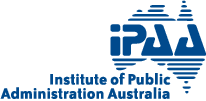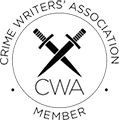The gatekeepers have no walls
The old traditions in publishing are changing. Once it was an industry with a lot of gatekeepers. It still is, but with eBooks and self-publishing and POD, the gate no longer has a wall.
This is a common view about the changing face of publishing. Many people think that books as we know them will virtually disappear. Personally, I’m not so sure.
The wonderful walled-world of being published in book form still attracts thousands of people. I assess manuscripts and it seems to me more people are seeking to be published than ever.
That’s partially a function of the means of production: twenty-five years ago you either needed to own a typewriter and have some typing ability, or have the money to pay someone who could type, in order to get your manuscript ready for submission.
Now, almost everyone has a keyboard and a printer. Any agent or editor will tell you there are a lot more manuscripts chasing the holy grail of traditional publication.
What has changed in the quarter of a century is the Net, which now allows the possibility that new and emerging authors (as well as those of us who have a back-list out of print) can get their books published to a mass readership numbering millions for very little cost.
It’s an exciting time and many people – mainly, it has to be said – those who have been rejected by traditional publishing – are relishing the prospect of the gatekeepers disappearing.
Not that I think that’s a good thing.
The gatekeepers – the agents and commissioning editors, as well as line or copy editors, are there for a reason: mainly to keep the standards and quality of the published word as high as possible. In times past an editor and author might work together for a whole afternoon over the punctuation and syntax of a single paragraph. (It used to be said that if you wanted to see excellent punctuation, all you needed to do was get hold of any Penguin book printed before 1970).
But with the advent of Kindles, iPads and other readers, the gatekeepers can be bypassed. No more rigorous assessment to see if the manuscript is well-written; no more copy editing, no more checking grammar, spelling and punctuation.
Which must mean that some of what is appearing in the Kindle store and other eBook stores is badly written, misspelled, badly punctuated rubbish.
I doubt if it that will continue for long. Sooner or later Amazon and the others will catch on to the fact that their platforms are compromised if they carry a lot of eDreck. Even though they don’t have a storage problem… they’ll have an image problem.
The time may come when all of them start to introduce some limited form of gate keeping. Already the really big sellers in eBooks are writers like John Grisham and Stephanie Meyer. Writers who went through the process.
Think about it. If eBooks don’t have gatekeepers, then we’ll have to invent our own.










